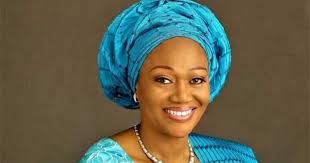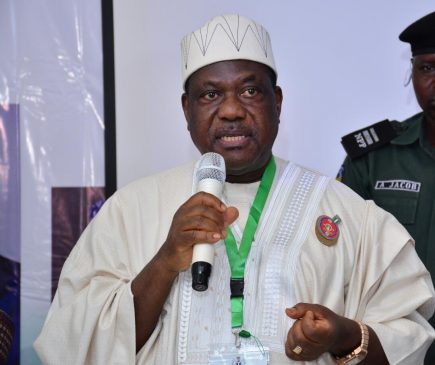Do Nigerian Politicians Require Formal Training In Democratic Studies?

BY PATRICK WEMAMBU
Chen, Mo., (2024) hypothesized that political education plays a pivotal role in shaping informed, engaged, and responsible citizens in any nation.
In his classic treatise, “Unveiling the role of political education for political participation in China,” the Asian egg-head postulated that the empirical literature lacks the exploration of the impact of political education on political participation in addition to political efficacy and social media usage.
This study investigates the interconnected relationship between political education, social media usage, political efficacy, and political participation in China. Drawing upon a sample of 843 participants across various regions, the research explores the extent to which these factors influence political participation within the Chinese context by applying the structural equation modelling for empirical results and establishing a positive association between political education and political participation.
Furthermore, the mediating role of social media and political efficacy is uncovered in relationship of political education and political participation in the research. It is suggested to emphasize and invest in comprehensive political education programs through colleges, universities and social media that promote critical thinking, information literacy, and political responsibility for the well-being of the Chinese society.
READ ALSO: FG appoints DBI’s David Daser to lead National Digital Literacy drive
Man is by nature a political animal, according to the famous Greek philosopher, Aristotle. Politics is, therefore, essential in shaping societies, influencing policies, and determining how communities function.
Aside providing the framework for governance, establishing laws, regulations, and institutions that manage a society – political processes shape policies that address social, economic and environmental issues.
In essence, thus, education and politics are closely linked as the former equips individuals with critical thinking skills – knowledge of history, economics, and social sciences. And enabling them to make informed decisions in the political sphere.
A pertinent question then arises. Are informed citizens essential for a healthy democracy? The answer is in the affirmative as the stated individuals can analyze policies, understand their implications and participate actively in the democratic process.
Consequently, education nurtures future political leaders by providing them with the necessary skills, knowledge, and understanding of societal issues. Additionally, It prepares individuals to become effective policymakers, administrators, and advocates for positive change.
Just as political education is crucial for the well-being and development of a country – it cultivates an informed and engaged citizens within a country.
Which brings one to the call of the Deputy Senate President, Jibrin Barau, last week on the need for political officeholders to undergo formal training in democratic studies to enhance good governance at all levels.
The top-ranking parliamentarian made the declaration in Abuja when he hosted the director-general of The Progressives Institute (TPI), Dr. Lanre Adebayo, and his management team during a courtesy visit to his office.
He pledged that the Senate would support TP – an initiative of the current leadership of the All Progressives Congress (APC) – in its mission to train young Nigerians in democratic principles and leadership.
Barau, who said he was a beneficiary of a similar initiative by the U.S.-based National Democratic Institute (NDI), assured that the Senate would provide the necessary backing to ensure the success of the Progressives Institute.
“I was one of those present at the unveiling of the Institute. I am an admirer and strong supporter of what the Institute represents, and I am supporting it wholeheartedly for several reasons,” he said.
And added; “One of those reasons is that I once benefited from a similar institute abroad. Since attending that training program, I have hoped that we would establish such an institution here in Nigeria.”
He continued: “So, when I heard from our National Chairman, Alhaji Abdullahi Ganduje, that this Institute was being established, I was delighted.
“I recall that about 26 years ago, when I was elected to represent my constituency in the House of Representatives during the start of the Fourth Republic, we were invited by the National Democratic Institute of the United States—a body affiliated with the U.S. Democratic Party.
“That Institute came to Nigeria to provide us with intensive training on how to function effectively in the legislature. At the time, there was a significant knowledge gap due to the long absence of a functional legislature under military rule.”
Stressing the importance of TPI’s work while noting that such training was absent at the dawn of Nigeria’s Fourth Republic and remains limited even after 26 years – Barau urged the leadership of the Institute to expand its activities to members of other political parties within and outside Nigeria.
“There was a long period when this country had no functioning legislature due to military intervention in our politics. As a result, much institutional knowledge was lost.
“The NDI trained us in a classroom setting on how to legislate effectively and conduct ourselves in office. That training gave us an edge. Members of the Fourth National Assembly were particularly well-grounded in legislative processes,” he revealed.
In his remarks, the Director General of The Progressives Institute, Dr. Lanre Adebayo, said the Institute was established to strengthen Nigeria’s political landscape through capacity building in governance and leadership.
Throwing full weight behind the call of the Deputy Senate President, one requires no empirical formula to decipher that establishing a comprehensive program which offers training for politicians is sine qua non to preserving democratic principles.
If approved, the proposed training in democratic studies could offer modules on governance, economics, law, and other pertinent subjects. This should go a long way in refreshing the memories of the astute politicians towards gaining a better understanding of the complexities of the roles they are expected to play as lawmakers.
While we are at it, the essence of refresher courses in polical reportage for the National Assembly Press Corps comprising Senate and House of Representatives media cannot be overstressed.
The Deputy Senate President is therefore implored to beam his searchlight in that direction. Deployment of his good offices in favourably considering this proposal with a view to approving it will be highly appreciated.










